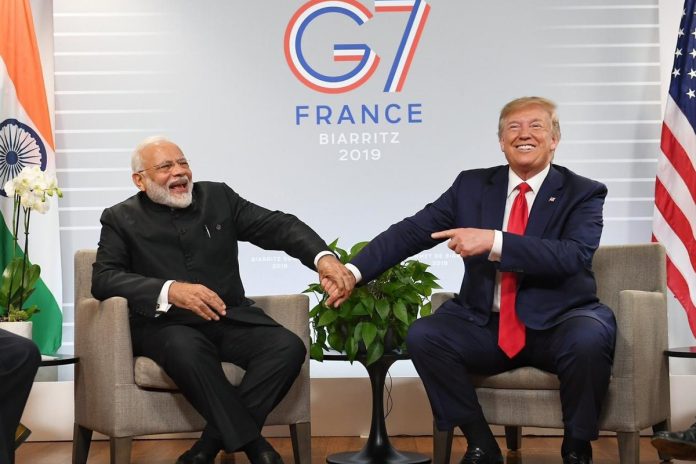India-US Relations: Understanding Donald Trump’s significance for India requires an examination of his goals for America, considering India’s strategic role—important yet not indispensable within that framework. A week before the US election, Trump, the Republican candidate, emphasized his commitment to strengthening the “great partnership” between the US and India, calling Prime Minister Narendra Modi a “good friend” in a Diwali message on X. He pledged to enhance ties if elected, condemning recent violence against Hindus in Bangladesh and supporting the Bangladeshi prime minister exiled in India, which adds to South Asia’s geopolitical complexities.
Trump’s outreach to the Indian diaspora in the US reiterates his connection with Modi, illustrated in high-profile events like the 2019 “Howdy, Modi!” rally and the 2020 reception at Gujarat’s Narendra Modi Cricket Stadium. This bond extends beyond symbolism, reflecting both leaders’ nationalist priorities: Modi’s “India First” aligns closely with Trump’s “America First,” focusing on domestic growth, economic nationalism, and border security.
Trump’s foreign policy, marked by self-interest and strategic partnerships, could impact India’s economic and defense landscape significantly.
Economic and Trade Policies
A Trump administration would likely push for US-centric trade policies, potentially pressuring India to lower trade barriers under threat of tariffs, affecting sectors like IT, pharmaceuticals, and textiles. Despite Trump’s past criticisms of India’s trade practices, his emphasis on reducing dependency on China could benefit India if favorable policies attract US companies seeking to diversify supply chains.
Defense and Security
Trump’s stance on China aligns with India’s concerns, suggesting increased defense cooperation. Under his leadership, the Quad—a security partnership among the US, India, Japan, and Australia—could strengthen further to counter China’s influence in the Indo-Pacific. Additional military exercises, arms sales, and technology transfers could enhance India’s defense capabilities, especially amid tensions with China and Pakistan.
Immigration and H-1B Visa Policies
Trump’s restrictive immigration stance, particularly on H-1B visas, previously impacted Indian professionals in the US. If reinstated, these policies could hinder access to American job markets for skilled Indian workers, affecting technology sectors reliant on this talent. Additionally, stricter immigration laws might drive Indian tech firms to seek other markets or invest in domestic growth.
Geopolitical Influence
Trump’s South Asia policies could impact India’s regional interests, particularly with Pakistan. His insistence on accountability in counter-terrorism aligns with India’s security priorities, and his “Peace through strength” approach could lead to a tougher stance on terrorism, which aligns with India’s security goals.

